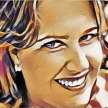
I can’t believe how much my relationship has changed, we talk and laugh so much more now. We are both way less snappy at each other, and we seem to enjoy being with each other so much more now. Even he said the other day that everything feels easier now.
These were the words of one of my clients when I was offering relationship coaching. This was after we had a session where I encouraged her (as I did with all of my clients) to notice and challenge their confirmation biases. It’s fair to say that she embraced the challenge and she found the same results that seem to be repeated consistently when people go through with this challenge.
More often than not, when we consciously choose what we think about and focus on in relation to other people, then we feel that their behaviour towards us changes.
This is the power of using confirmation bias to your advantage and this can be applied with the law of attraction too.
The beauty of this is that you can see how it applies to you whether you are a more reason and logic-based person or if you are more spiritual and everything in-between. So its a win-win. Let me explain in more detail.
CONFIRMATION BIAS
So what is confirmation bias anyway?
Our minds are sooo powerful and we are constantly taking in and processing immense amounts of information. In order to ensure that we are able to function and to speed up the way our mind processes all of this information, its necessary for the mind to create short cuts.
Confirmation bias is just one example of the shortcuts that the mind uses to process information more quickly.
Notice I said more quickly NOT more efficiently. That was deliberate because our confirmation bias often causes us to come to erroneous conclusions. Here’s how and why:
First of all, don’t forget that this is mostly an unconscious process, so don’t use this as a stick to beat yourself with.
So how confirmation bias works is this. When you come up with a theory, your mind then works day and night to show you ONLY things that support your theory, doing its very best to make sure that you don’t notice the things that deviate from your theory.
An example of confirmation bias in action might go something like this:
I get home from work after a really crappy day, nothing has gone right, the computer networks were down and the students I was teaching were really difficult, its fair to say that I am NOT in the best mood.
By the time I get home my other half has already been home for an hour or so, I’m so relieved when I remember this and I ask him what’s for dinner. To say that I am irked when he replies that he has waited for me to come home so we can decided together, is a HUGE understatement. I am really miffed. So in that moment while I am feeling tired and grumpy I think to myself UGH he is SOOOO lazy.
So there is my theory — he is lazy. So my confirmation bias springs into action and starts showing me ONLY things that will support this theory. Throughout the rest of the evening, I "notice" that he hasn’t put his shoes away (lazy), his jacket is thrown over the back of the sofa (lazy) the phone rings and he doesn’t answer it, saying that it’s not likely to be for him (lazy) he lies on the sofa watching tv (lazy).
The things that I don’t "notice" in the haze of my confirmation bias are that he brought me a cup of tea in bed that morning, as he does every morning, he made me a lovely packed lunch for work as he always does, he gave me a foot rub to help me relax, he made the dinner and cleaned the kitchen.
Now when this might seem hugely ungrateful and like I am taking my other half for granted, but it's not that at all, this is literally confirmation bias in play. I don’t notice these things not because I am ungrateful but because confirmation bias is doing its utmost to make sure that I don’t see them because they don’t support my theory, and therefor they are irrelevant.
This is an example of confirmation bias in its most simple form.
This isn’t a true story because luckily I am very aware of many of the cognitive biases that occur in our minds, as these biases play a big part in our decision making. In a former job, I used to create and run simulated operations for senior police officers to assist them in developing their decision making skills while under pressure, that was a fascinating job, but honestly it's just as fascinating learning about how these biases effect how we live our daily lives.
LAW OF ATTRACTION
So let's have a look at how this fits in with the law of attraction.
If you are at all familiar with the law of attraction the chances are you have heard of the principle that focusing on what is positive about a person will bring about more of what is positive in that person.
Or even if you are having difficulties with a person, imagining a situation where those difficulties would be removed and then treating the person as if there are no difficulties.
In terms of the Law of Attraction, this is working on the basis that like attracts like, so if you treat someone as if, then they will become that way.
In terms of confirmation bias using the law of attraction principles is a way of consciously influencing our cognitive bias to see the positives.
So in the earlier example because I was in a mood and things didn’t play out the way I hoped they would I came up with a negative theory and my mind worked to prove that theory. If I was following the principles of the Law of Attraction, I could have chosen the theory that he actually looks after me pretty well (a positive theory) and if I had done that then my mind would have worked with me to show me all of the good things like the foot rub etc.
So whether you want to call it the law of attraction, or maybe you want to call it consciously choosing your thoughts, if you do this you can really turn things around. Because the ripple effect of this can be huge, in that when we feel happier/more positive we behave more positively which usually causes others to mirror that positivity. In our earlier example, this could have played out as follows:
Had I chosen the positive theory and noticed all of the good things my other half did for me, instead of glowering at him, I would likely have thanked him for the things he did do, I might have talked to him about my day and asked about his. In thanking him and taking an interest in his day, it's likely that he would respond in kind and instead of the whole evening being ruined by a bad day, it could have been rescued and we could have had a lovely evening of togetherness.
Further more the gratitude that I showed him for the things he did would be more likely to ensure that he would continue to do those sorts of things in the future, it also would likely have encouraged me to do more nice things for him in the future and so the ripple effect goes on and on.
So the real key here is to become more conscious of our thoughts and the theories that we create based on those thoughts. By doing this we are more likely to choose positive theories therefore creating a more positive environment. Confirmation bias has no preference it will work with any theory you give so try to choose positive ones.
Again don’t beat yourself up if you fall into the negative theories just try to notice them and turn them around, Rome wasn’t built in a day and changing a lifetime of cognitive habits will not happen over night, but being more aware is a fantastic place to start.
About the Creator
Lara L
Writer, Creative Crafter, Lover of Animals and Nature. Chronic Illness Warrior, Teacher and Coach
Find me at www.funwithfibromyalgia.wordpress.com






Comments
There are no comments for this story
Be the first to respond and start the conversation.